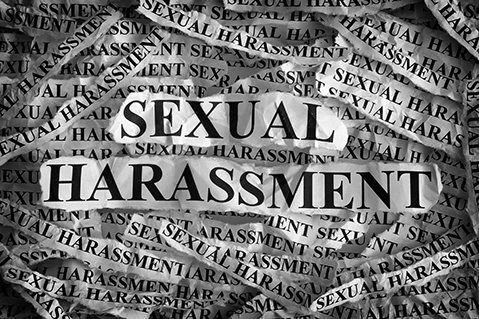New Poll Sheds Light on Canadians’ Attitudes Towards Disability in the Workplace

Half of Canadians believe that hiring a person with a disability could carry a degree of risk for employers, according to an Angus Reid Institute survey released today. The poll found that 50 per cent of those surveyed agreed with this statement: “It’s understandable that employers feel it is risky to hire people with physical disabilities.” […]
Does Your Company’s Dress Code Violate the Human Rights Code?

Employee dress codes have long been a fixture for customer-facing employees working in the service industry. However, we have recently seen numerous high-profile legal challenges to dress code policies. Specifically, some employees have claimed that their employers’ dress code policies are discriminatory, often with success. Employers are cautioned that their dress code policies could be […]
The Reinstatement Of Shawn Simoes: Takeaways for Employers

After discussing in last week’s post the evolution in attitudes toward workplace sexual harassment and violence following the one-year anniversary of Jian Ghomeshi’s termination from the CBC—and subsequent allegations of physical abuse by several of the former Q host’s female partners—another incident cited in that post made news yet again.
A Year After Ghomeshi: Ontario Proposes New Sexual Harassment Law

[vc_row][vc_column width=”1/3″][vc_single_image image=”2018″ img_size=”full”][/vc_column][vc_column width=”2/3″][vc_column_text] Almost a year ago, Jian Ghomeshi, the former host of the internationally-syndicated CBC Radio program Q, was dismissed from his employment amidst allegations of sexual assault against past female partners. The barrage of additional allegations of sexual harassment and bullying by Mr. Ghomeshi against his CBC co-workers highlight deficiencies in […]
A Year After Ghomeshi: Increased Awareness and Legislative Action on Sexual Harassment, Violence

By: Laura Williams It only takes one major case to transform public perception and spur action at the highest levels.
Departing Employees: Are Your Organization’s Restrictive Covenants Enforcable?

Employers will often include restrictive covenant clauses in their employment agreements in order to protect their business interests in the event of an employee’s departure from employment. While restrictive covenants can be effective in protecting an organization’s interests, courts often deem such covenants unenforceable because they are overly broad, unenforceable or ambiguous. The Supreme Court […]
Federal Elections: Employers’ Responsibilities

On Monday, October 19, 2015, Canadians will return to the polls to elect a federal government. Pursuant to the Canada Elections Act (the “Act”), every Canadian citizen who is 18 years of age or older is entitled to three consecutive hours while polls are open on election day in order to cast their vote.
Employers, Take Care when Suspending During Workplace Investigations

Questions are being raised about the handling of harassment complaints by the Canadian Olympic Committee (COC) leadership after a document has revealed that the organization was aware of harassment-related allegations against Marcel Aubut, the President, going back as early as 2011. Recently, an employee of the COC filed a formal complaint against Mr. Aubut for […]
Religious Accommodation in the Workplace: a Clarification for Employers

When Kim Davis, an elected clerk in Rowan County, Ky., refused to sign a gay couple’s marriage license in August, she may well have known the move would be provocative. What she couldn’t predict was how that act of defiance would put her at the centre of an ongoing debate over religious freedom.
Why Your Company Needs an Employment Agreement ‘pre-nup’

Fall is a season of new beginnings. Students go back to school and businesses recruit new talent to help them enact bold plans for the year. Because it is a time when exciting new employment relationships are established, the thought of those relationships one day ending is far from most employers’ minds. That is precisely […]